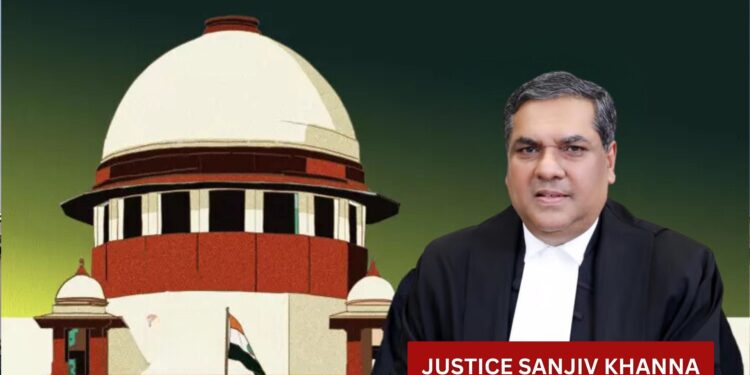President Droupadi Murmu issued a formal notification appointing Justice Sanjiv Khanna as the next Chief Justice of India (CJI) after clearance from the Central government. Justice Khanna will take over as the 51st CJI when the current Chief Justice, DY Chandrachud, retires on November 10. In line with tradition, CJI Chandrachud recommended Justice Khanna, the senior-most puisne judge at the Supreme Court, for this position. Union Minister of State for Law & Justice, Arjun Ram Meghwal, shared the news on X (formerly Twitter). Justice Khanna’s tenure will be relatively short, lasting 183 days, with his retirement slated for May 13, 2025.
Justice Sanjiv Khanna began practising law in 1983, focusing on taxation, constitutional law, arbitration, commercial disputes, and environmental law. He was appointed Standing Counsel (Civil) for the National Capital Territory of Delhi in 2004. He became an Additional Judge of the Delhi High Court in 2005, attaining permanent status the following year. His elevation to the Supreme Court came in January 2019.
Justice Khanna is the nephew of former Supreme Court Justice Hans Raj Khanna. He was celebrated for his dissent in the ADM Jabalpur case, which challenged individual rights during the emergency period. As a judge at the Supreme Court, Justice Sanjiv Khanna has delivered several impactful judgments on critical constitutional and societal issues. He was a key member of the Constitution Bench that upheld the abrogation of Article 370, which granted special autonomy to Jammu and Kashmir. He also participated in the ruling that declared the Electoral Bonds scheme unconstitutional due to its potential to allow anonymous donations to political parties.
In May 2023, Justice Khanna ruled that the Supreme Court has the authority under Article 142 to grant divorces in cases of irretrievable breakdown of marriage, setting a significant precedent for marital law. He also played a central role in rejecting petitions for tallying all VVPAT slips with EVM votes, maintaining the existing election process.
Justice Khanna’s recent notable cases include refusing to halt the appointment of former bureaucrats Gyanesh Kumar and Dr. Sukhbir Singh Sandhu as Election Commissioners just before the 2024 Lok Sabha elections. He was also instrumental in high-profile bail decisions, including interim bail for then-Delhi Chief Minister Arvind Kejriwal and Member of Parliament Sanjay Singh in the alleged Delhi excise policy scam.
Beyond these, Justice Khanna has addressed sensitive issues involving student rights, such as a recent stay on a Mumbai college’s dress code policy restricting the wearing of burqa, hijab, or niqab on campus. Earlier this year, Justice Khanna recused himself from hearing review petitions against the Supreme Court’s decision not to recognize marriage or civil unions for same-sex couples.
Justice Khanna is known for his thoughtful legal philosophy, which he expressed in 2019 during a Full Court Reference at the Delhi High Court. He emphasized the need to address delays in case disposal, the high cost of litigation, and the perception that dishonesty might be necessary to win cases. Describing his judicial approach, he said his role as a judge is to be a “keeper of law” rather than a creator of law.

















